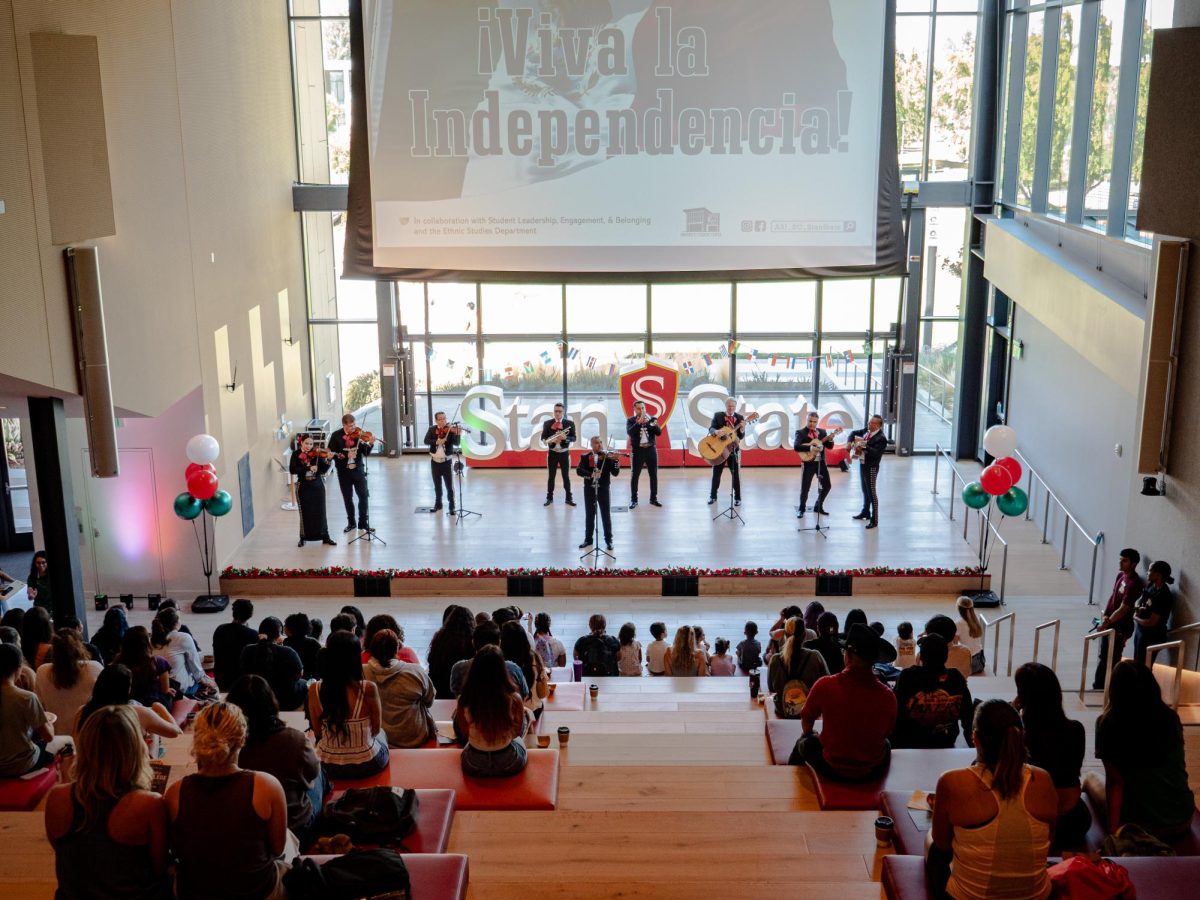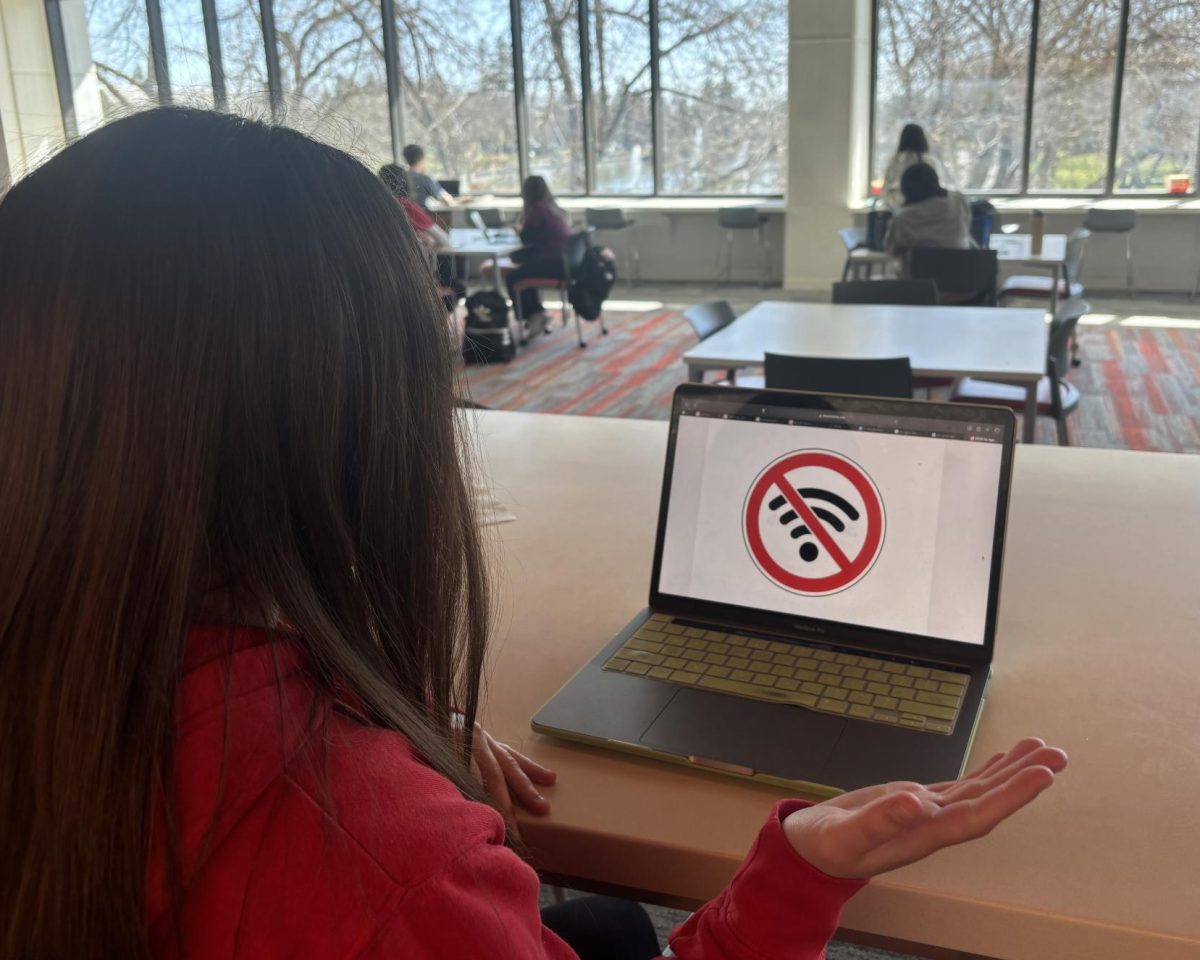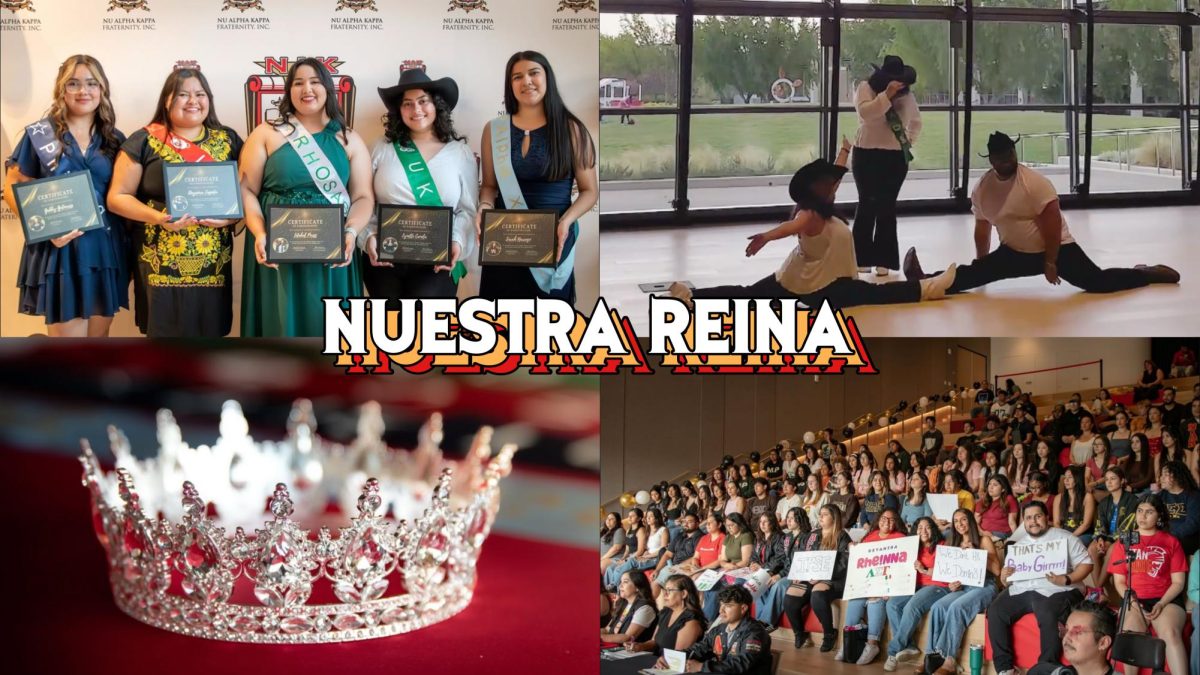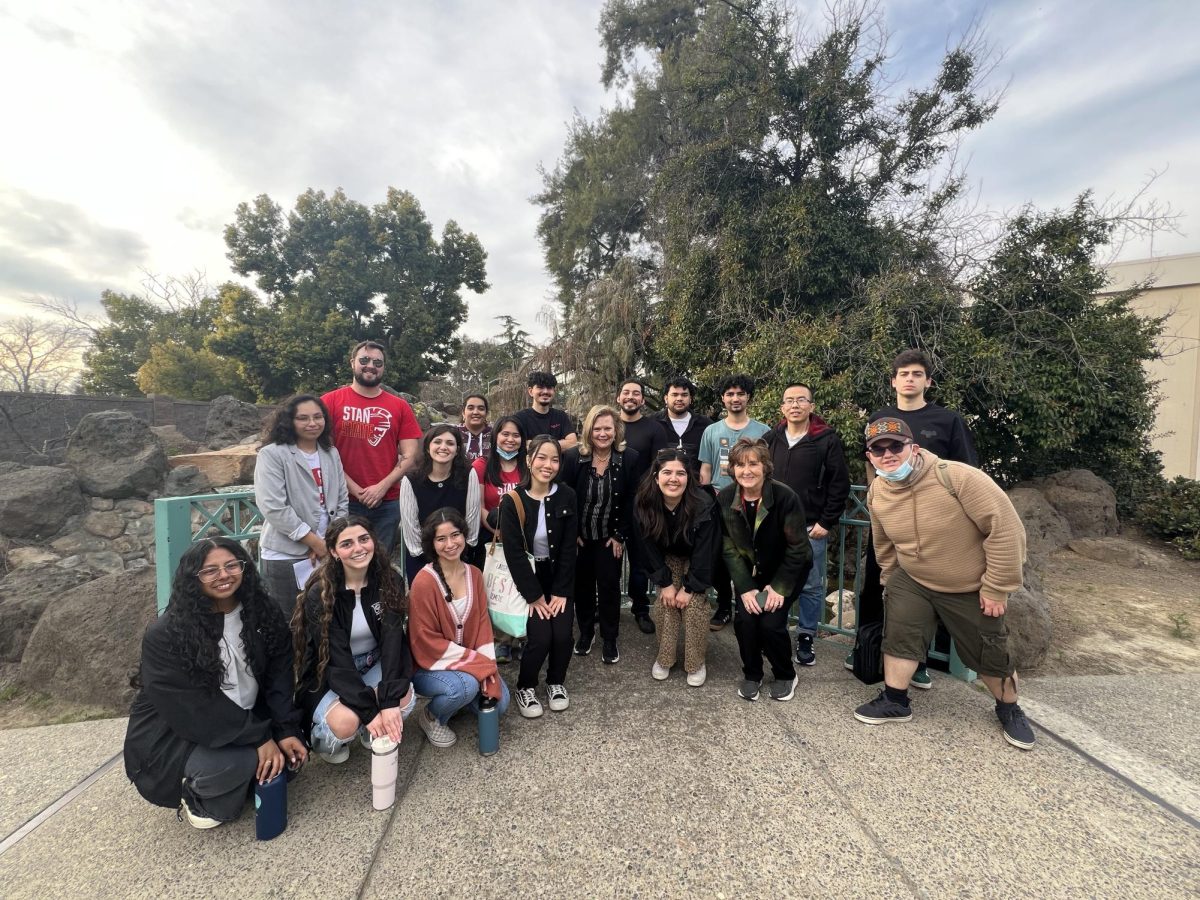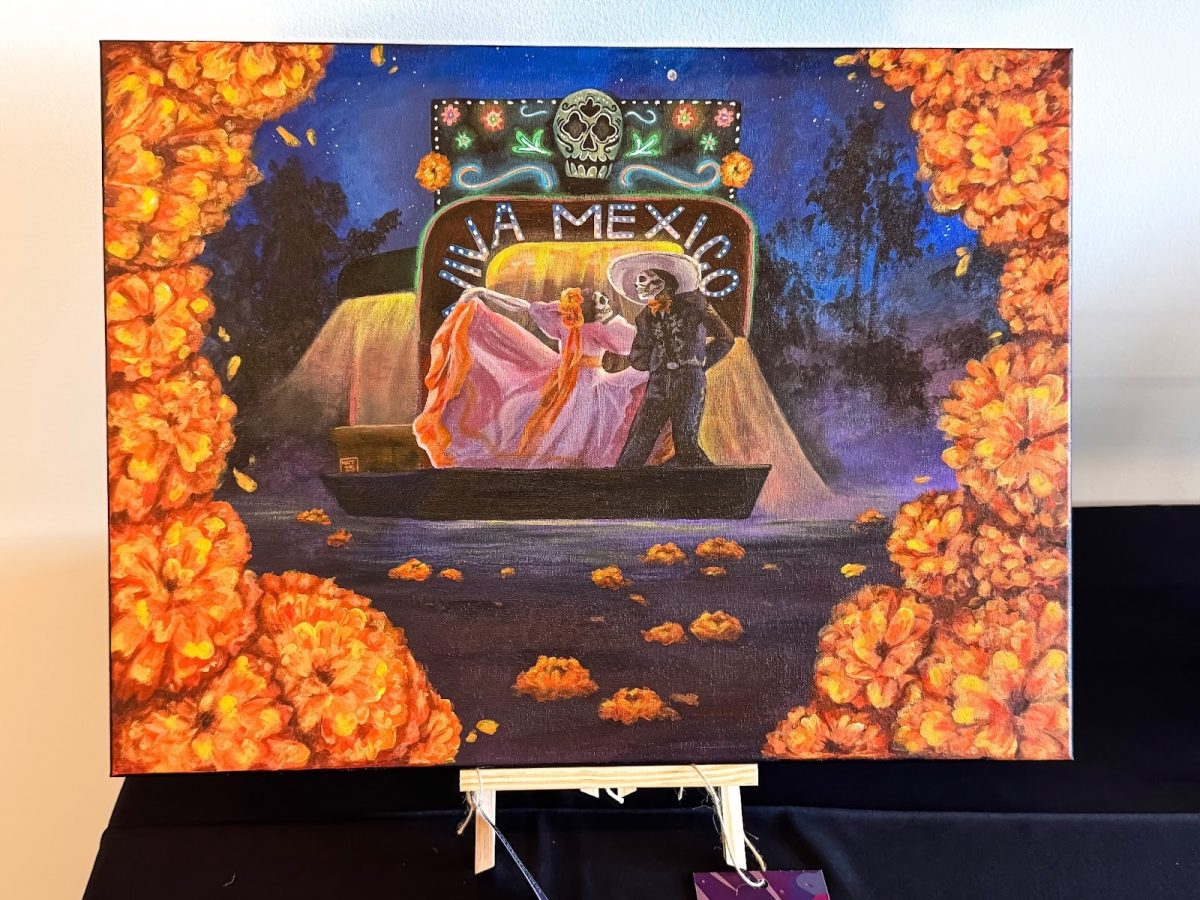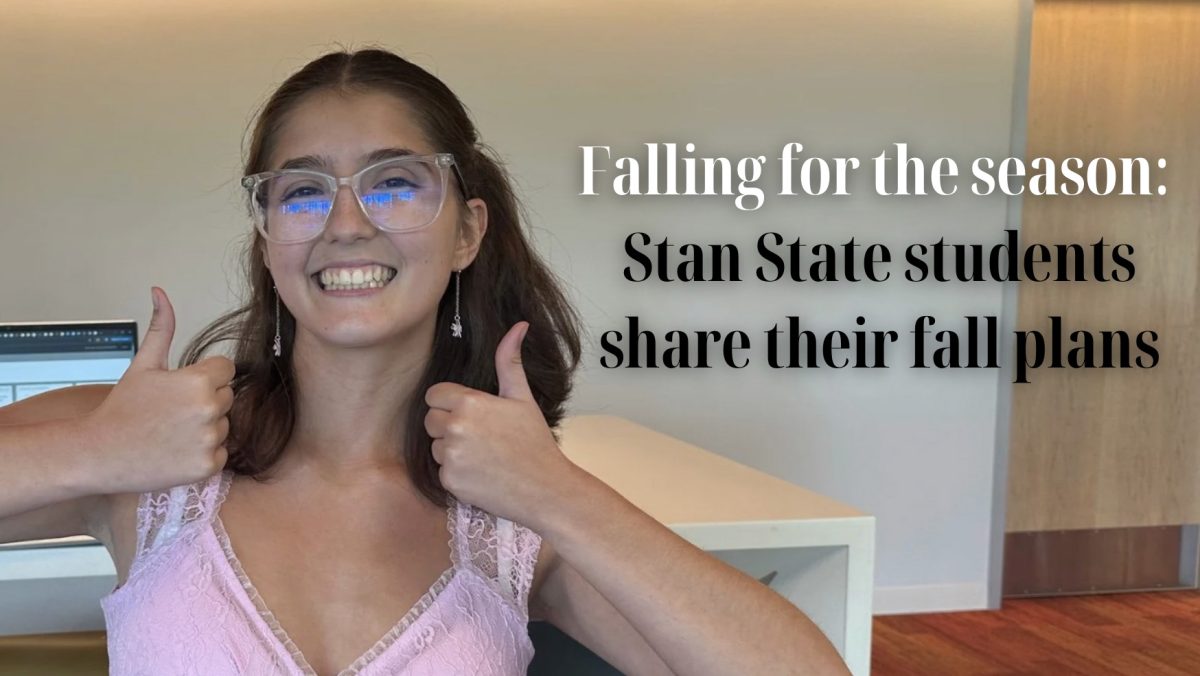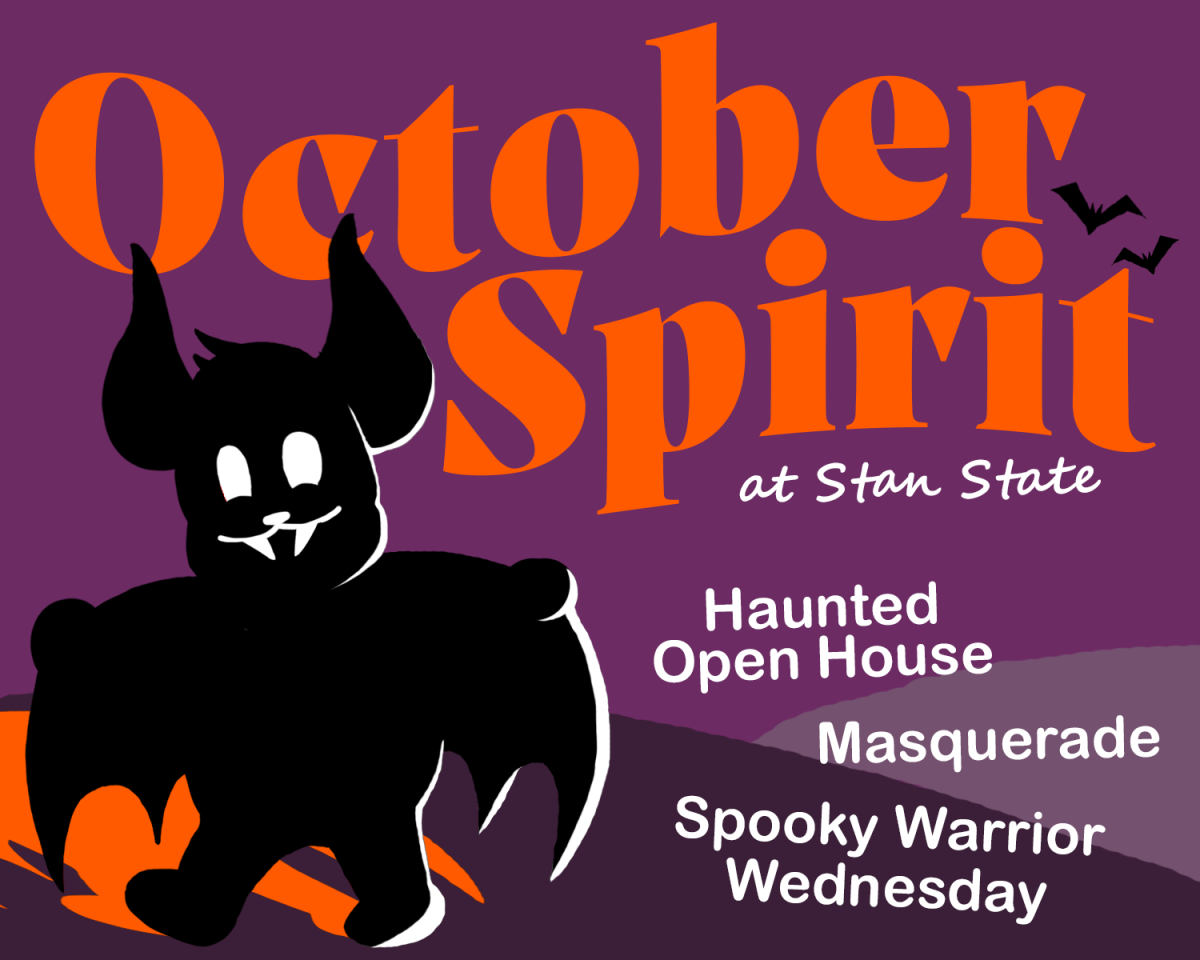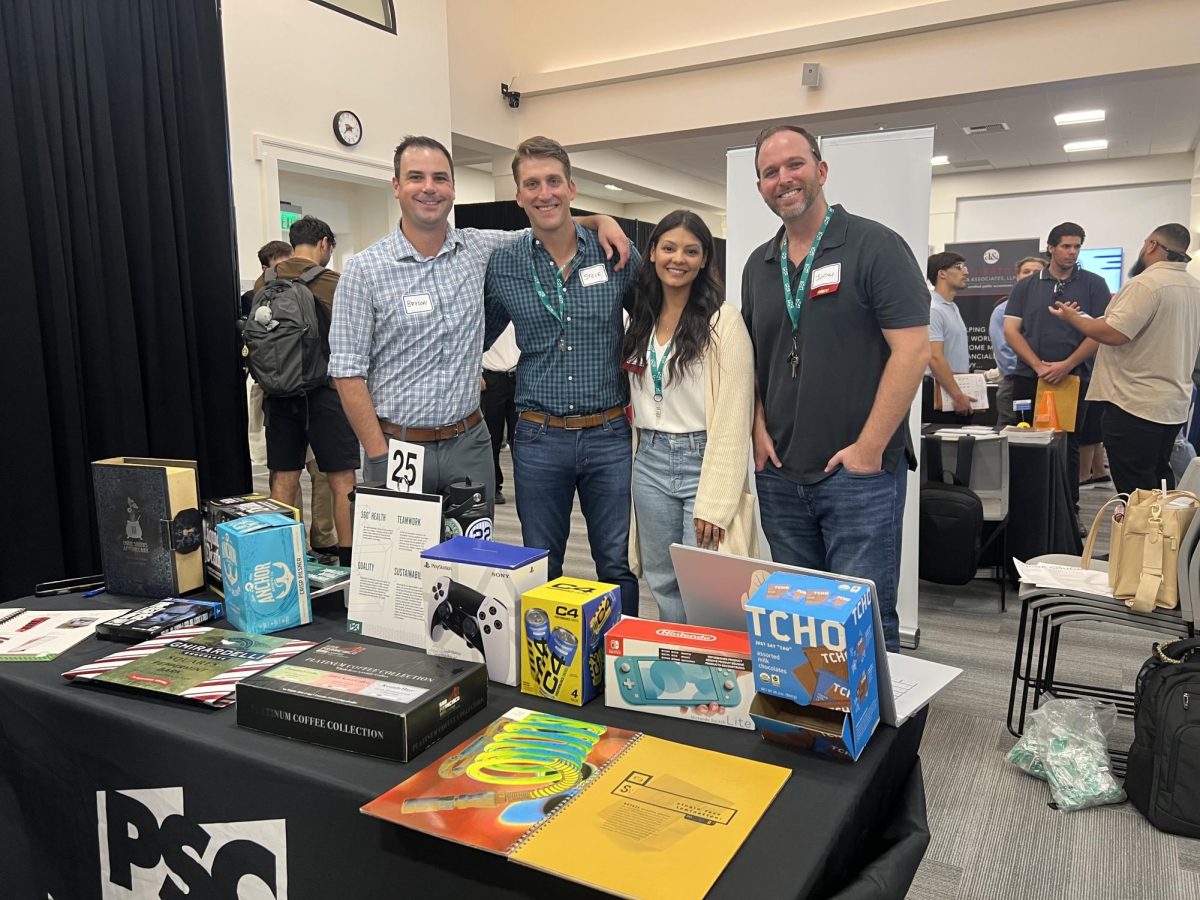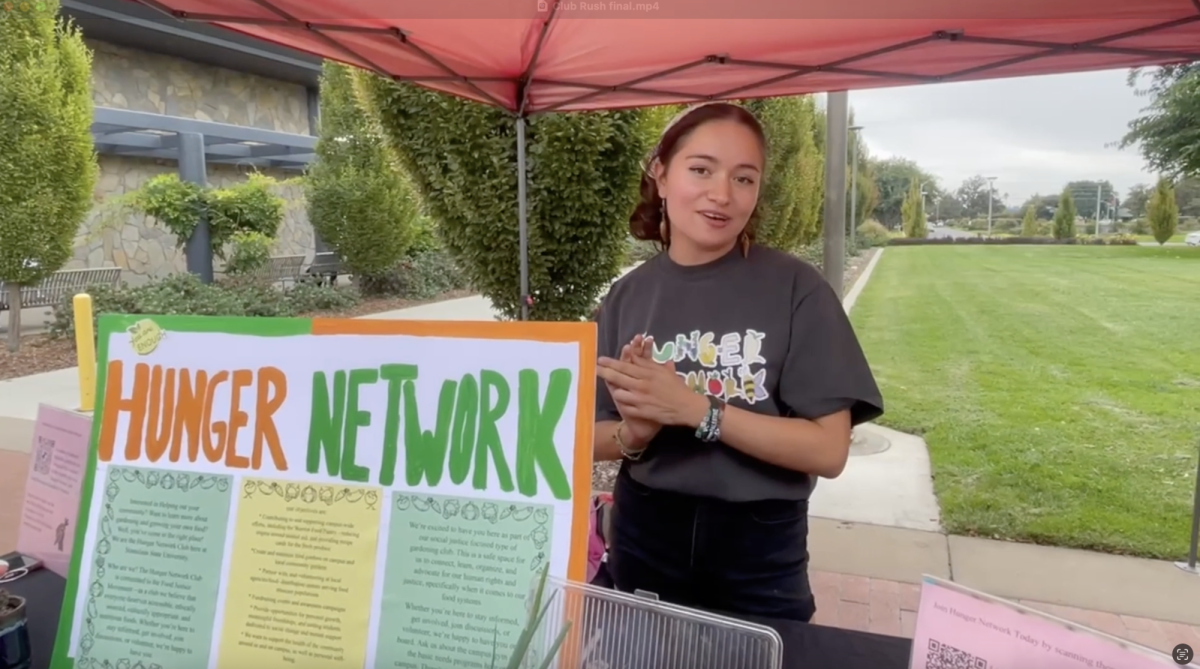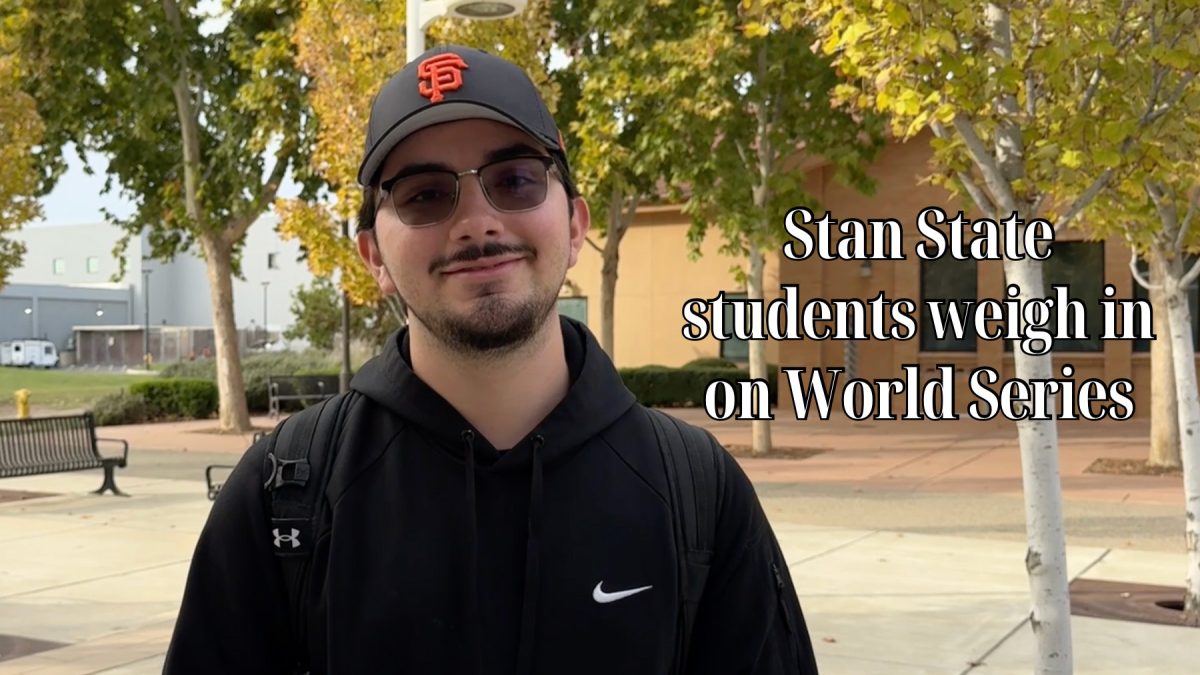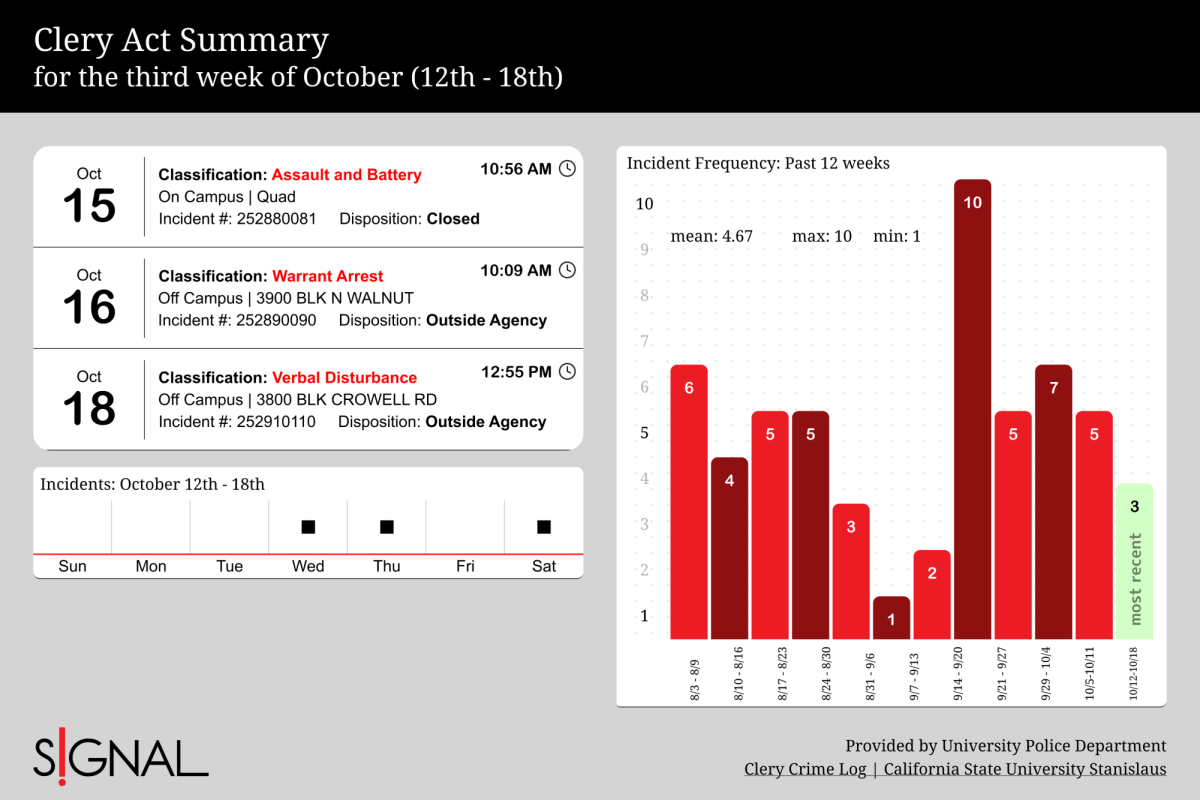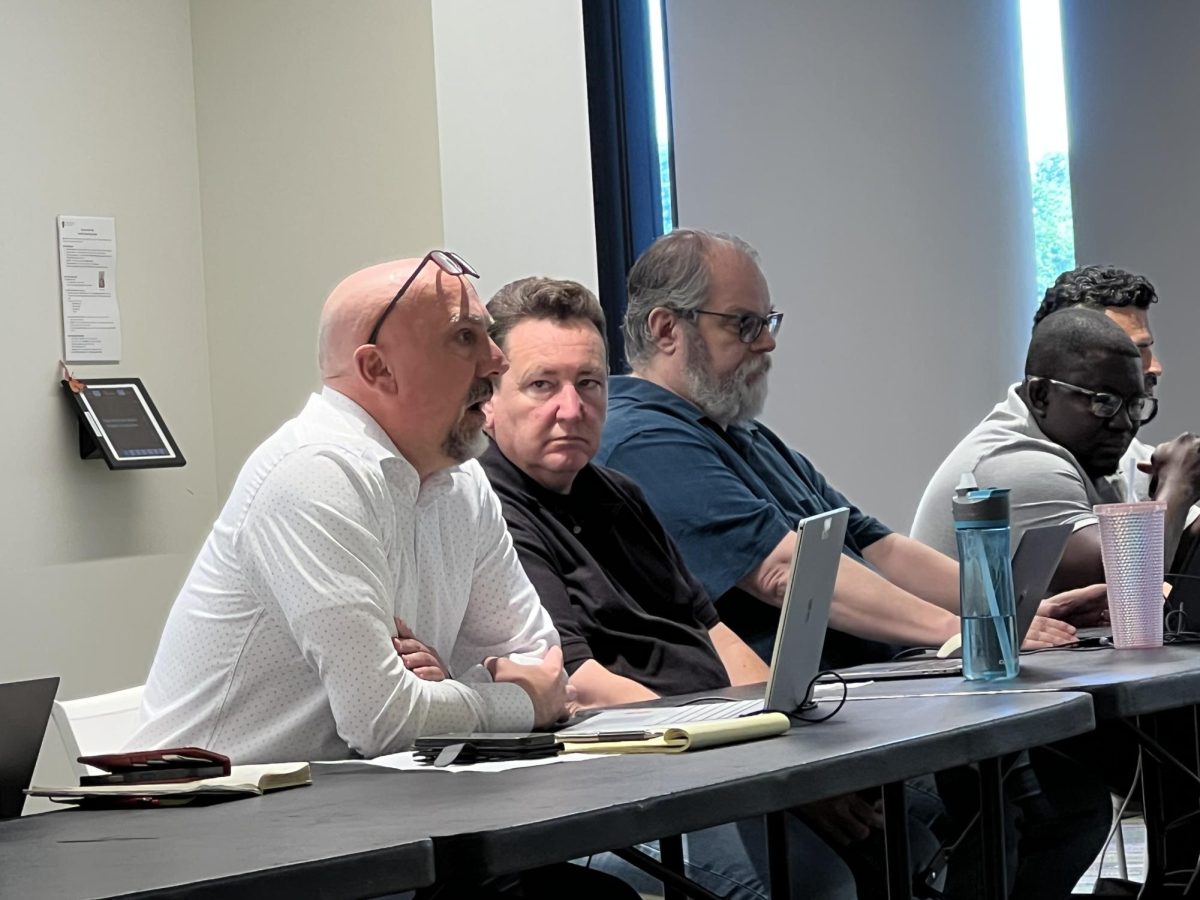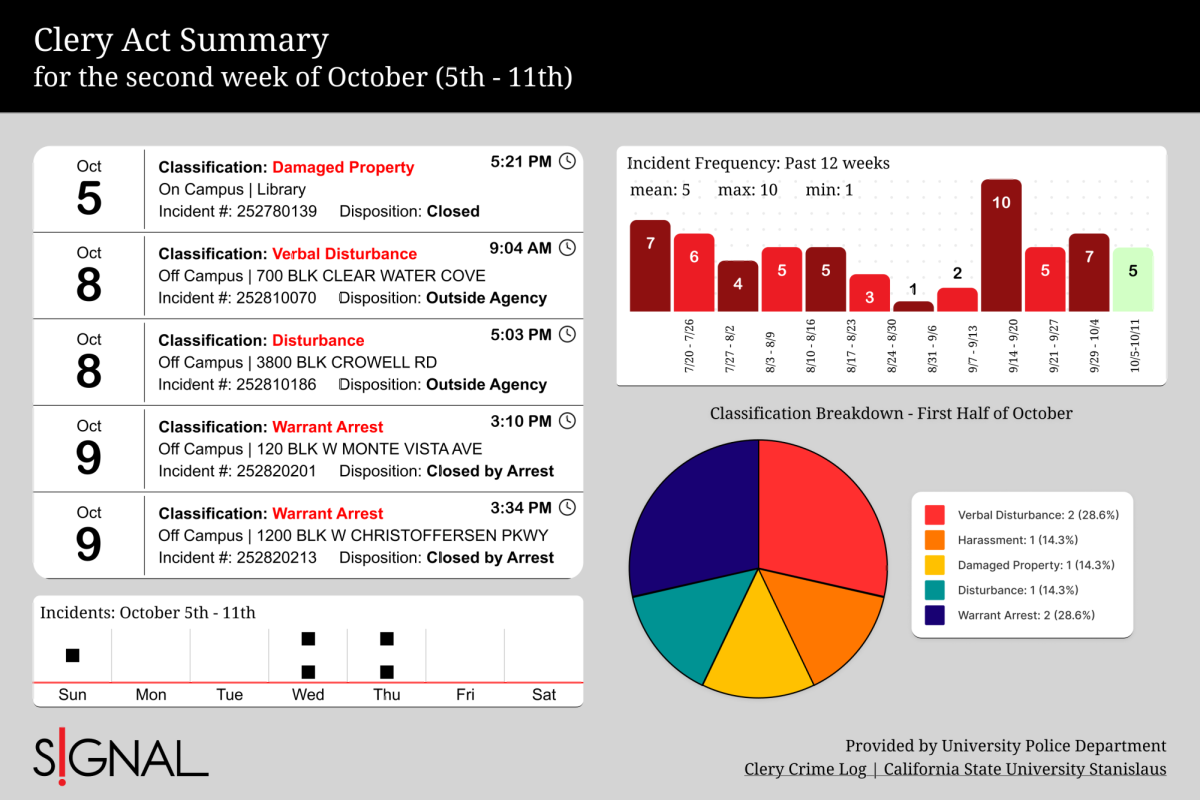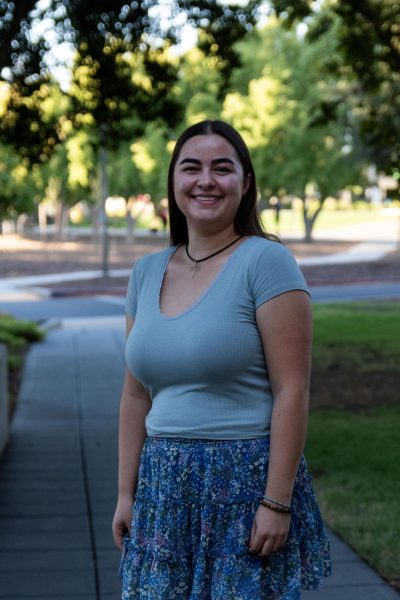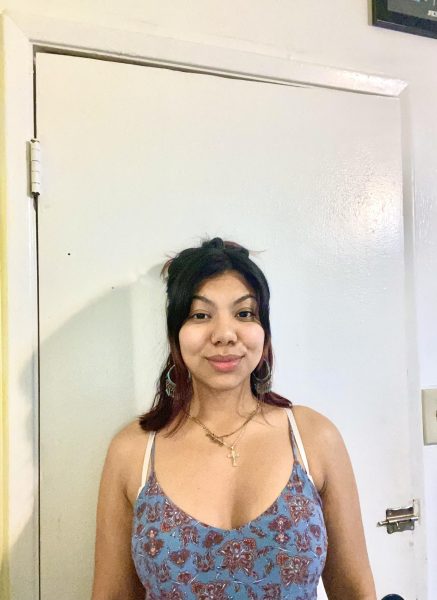CSU Stanislaus has a variety of graduate programs for undergraduate students to choose from, including Master’s degrees, certificates, post-graduate credentials and doctorates. In this article, current graduate students share their experiences with graduate programs and Stan State and offer advice for undergraduates considering graduate school at Stan State.
Joy Ok is a graduate student pursuing a Master of Arts in Writing Studies. She pursued her undergraduate degree at Stan State and decided to study at Stan for her Master’s as well.
When asked why she chose to continue at Stan State, Ok said, “I really enjoyed the culture and community that I had during my undergrad, and I wanted to continue that here.”
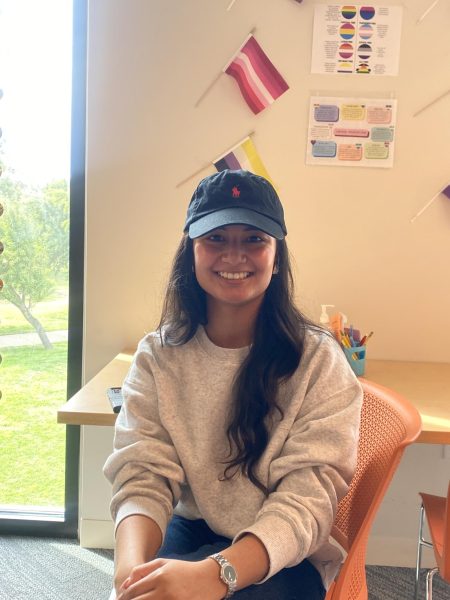
Graduate programs can be time-consuming and balancing school with work, while also maintaining a life outside of school, can be difficult.
“I try to get in a walk here and there, and decompress from work life, personal life, and so on,” Ok said. “I do try to have the weekends, at least one day of the weekend, just for myself, so I can either play video games, go shopping, go cafe-hopping, and try to have an identity beyond academia.”
Staying organized is important for effectively balancing school and work. Ok expressed that one of her greatest challenges as a grad student is maintaining this balance. Working at the Writing Center on the Turlock campus and taking classes at the same time, Ok stated that she learned “to make boundaries, and say ‘Hey, I can’t finish this workload for this day, but I can do it tomorrow. I need to focus on other class commitments.’”
For students considering going into graduate programs, Ok advised, “Making sure you find a program that fits your research and your quality of life is super important decision making. While we may think two years or three years is a short amount of time, you’ll still be working with these people [faculty] on a daily basis.”
Logan Walbert is in his third semester of the Master of Arts in History program. Walbert stated that Stan State was “the only choice for me.” Like Ok, he earned his undergraduate at Stan State and decided to pursue the graduate program because of the environment.
“I already had good feelings, good vibes, with the teachers and students,” he said.
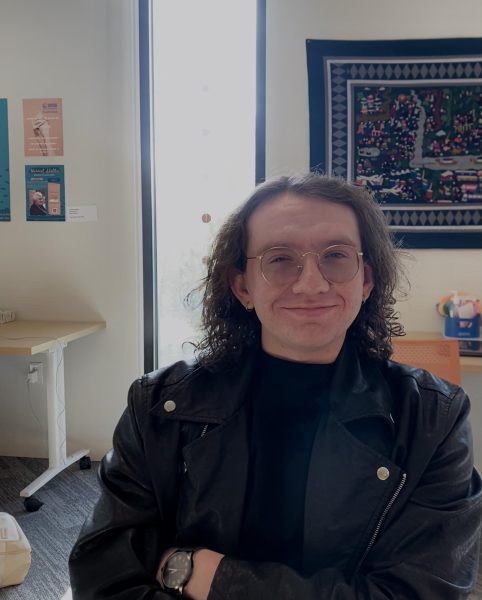
Walbert is currently taking one graduate seminar, one 4000 level course, and one independent study. He explained that the work “isn’t that much, honestly. I’m probably taking the least amount of everybody else, so it’s easy for me.”
For students going into graduate school, Walbert suggests students become more involved on campus.
“You want to be in here and learn. You have to adjust to being extroverted, talking, and open to being more involved than being an undergrad. Be out there,” he said.
Samantha Victorio is in her second year of earning her Master of Social Work (MSW). While Stan State was not her first choice for graduate school, Victorio expressed that she likes Stan State.
“I really enjoy my classes, I think they’re really fascinating. I like my cohort, and I get along with pretty much everyone in my cohort,” Victorio said. “I also love how accessible it is to my home, it’s a thirty-minute drive. Also, I’m not in debt, I don’t have to take out loans because tuition here isn’t too expensive compared to other universities.”
Victorio shared that the workload for an MSW can be pretty stressful.
“We not only have lecture classes to attend, but 16 hours of practicum at a different agency we have to do every single week,” she said.
Like Ok, Victorio works in the Writing Center in addition to taking classes. To manage work and school, Victorio explained that, “It helps to have specific times planned ahead to work on stuff.” Outside of classes and work, Victorio added, “To protect my personal life, I make a rule for myself to not let work bleed into my weekends.”
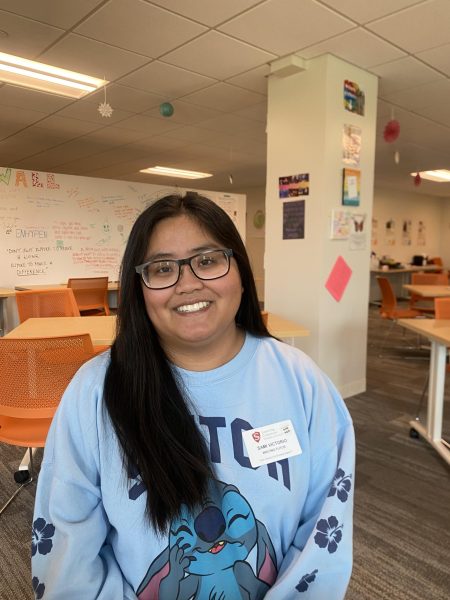
When asked if she had advice for prospective graduate students, Victorio focused on the importance of making connections with faculty and other students.
“Make connections for sure. Classes are more intimate because they’re smaller. Make connections and, don’t feud with people, especially because there are a lot of group projects,” she said.
One of Victorio’s biggest challenges is finding time for self-care. Victorio explained that it “took me a long time to realize how important it is to protect your peace, even when you’re studying and working hard in grad school.”
She went on to suggest to other graduate students, “Even if it is fifteen minutes out of the day, do something just for you, nothing to do with work or school. Make time for that every day. I recommend an hour. If not, at least fifteen minutes.”
Like Walbert, Daniel Castrejon is in his second year of a Master of Arts in History, with a focus on gender and sexuality.
Castrejon, like Walbert and Ok, received his Bachelor’s at Stan before deciding to pursue his Master’s as a full-time student. He has not found the classwork for his degree difficult, but explained, “It can be a lot trying to balance everything, keeping everything scheduled. Especially the individual study because it’s custom to your pace.”
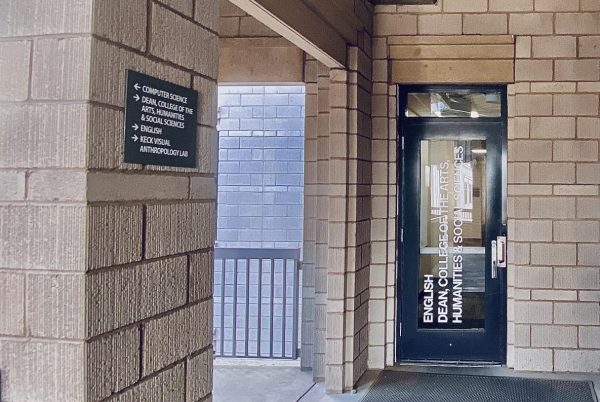
When asked how he manages the stress of graduate school, Castrejon shared, “I like to go out with friends, usually to get drinks, but also just to eat, hang out, whine, talk about the program. It’s all
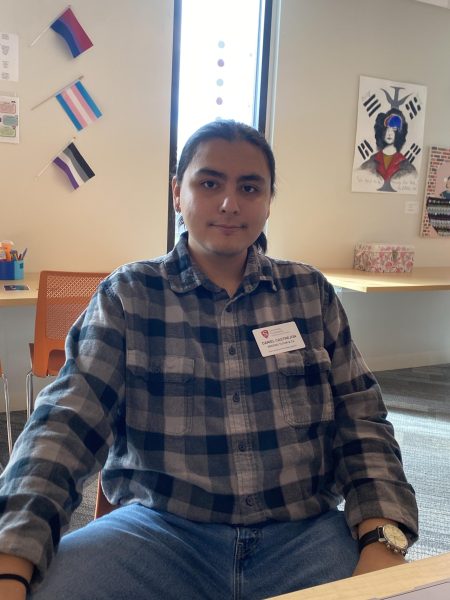
students in the program. I also like to play video games when I can, I just don’t always have a lot of time.”
One challenge Castrejon had as a new graduate student was feeling doubt in his abilities. He stated, “Initially, when I first started, I felt a bit of imposter syndrome. I didn’t feel like I was where I should be. The best way I found to fix that was to build a relationship with the faculty because they’re nice and they experience imposter syndrome, too. Built up rapport with faculty, and classmates, too.”
Castrejon advised students going into graduate school next semester to be serious about their studies and put in the work.
“Read, read, read! Like, for the history program, you can’t just skip books, and you can’t put anything off until a couple days before it’s due,” Castrejon said. “You need to be organized and have a set schedule. You need to put a little bit of time into every day.”



